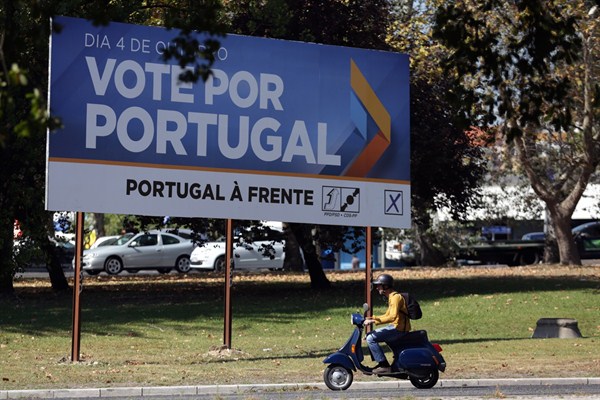Portugal goes to the polls Sunday, but with high voter apathy, turnout is expected to be at its lowest since the country transitioned back to democracy in the 1970s . In an email interview, Thomas Bruneau, the vice president of Global Academic Professionals and professor emeritus at the Naval Postgraduate School, discussed Portuguese politics and what is at stake in Sunday’s election.
WPR: What is current public opinion in Portugal toward austerity, and how will this affect Prime Minister Pedro Passos Coelho's bid for re-election?
Thomas Bruneau: Public opinion in Portugal toward austerity, which has resulted in unemployment, reduced pensions and increased costs for the public in education, health and transport, is very negative. Based on a national survey in March 2015, 41 percent of the general public holds Prime Minister Passos Coelho and his center-right coalition of the Social Democratic Party (PSD) and the conservative Democratic and Social Center-People’s Party (CDS-PP) responsible for Portugal’s economic crisis. In the same survey, 51 percent of respondents had a negative opinion of the PSD/CDS-PP coalition’s handling of the crisis.

